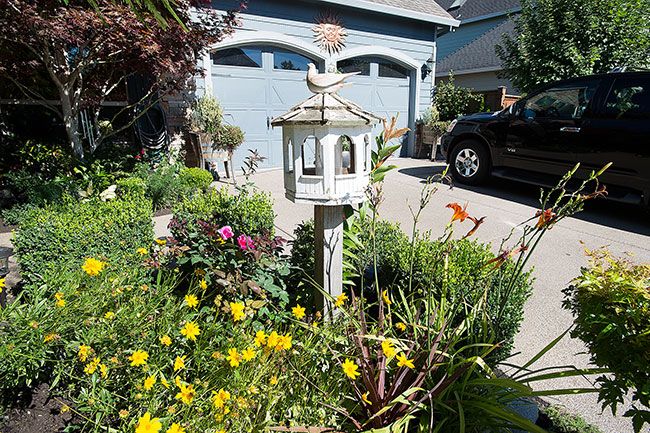Task force reviews water issues
It’s almost impossible to predict what kind of water restrictions farmers might face in any given summer, Joel Plahn, state watermaster for District 16, told the local Water Task Force at a meeting earlier this month.
“One of the questions I get all the time is why are we regulating when we had record rainfall in the winter,” said Plahn, whose district which includes Polk and Yamhill counties.
“I kind of look at it separately, to where you have the east side of the Willamette River, you’ve got the mountains with the snowpack. That’s helping out a lot.
“And then you’ve got the west side, where we just need some rain, continuously throughout the summer, to keep these stream basins up, to meet the needs of everyone. We don’t have a snowpack, you know, in the Coast Range, that we’re relying on, that’s feeding the Yamhill and these other streams.”
Convened by County Commissioner Mary Starrett, the meeting represented an attempt to analyze patterns of agricultural water use and discuss possible options for the future. Several prominent farmers attended, along with commissioners from Yamhill and Polk counties and representatives from most cities in Yamhill county.
Plahn said a number of different factors play into summer water issues.
Temperature is one, he noted “because it puts a higher demand on the water, the pumping of it.” He added, “There’s just more use when the temperatures are above average.”
In addition, he said, “There’s a variation in crop rotations. You have hundreds of water rights on the stream system, but that doesn’t mean that every year, everyone is using their water right. You know, it could be every couple of years that they’re using it, because they’re rotating things in and out.
“So to predict, kind of, what’s going to happen for the upcoming years is extremely different, because I don’t know what rain we’re going to get, and two, I don’t know what everyone’s planning to grow, coming into the next season.”
Changes in farming practices, such as the increasing use of driplines instead of massive irrigation guns, also play a role, Plahn said.
Farmer Sam Sweeney noted such trends can make a dramatic difference in just a couple of decades.
“Now back in the ‘70s, there was just an awful lot of processed vegetables planted,” Sweeney said. “Which, they require about an acre and a half, acre foot, per acre. And right now, we’re going into a cycle, when you drive around, you see a lot of filberts. These types of crops, they don’t take a lot of water.
“But that’s not to say, 20 years from now, that we’re not going to go into another crop cycle that’s going to use more water. Maybe even filberts. They might find out it’s beneficial to irrigate filberts with more water.”
For farmers, water means security. As a result, he warned, increased demands from other would-be users are likely to face resistance.
“So as far as looking at the farm cycle and saying, ‘They’re not using it, they need to give it up,” we’re not going to give it
p,” he said. “That’s because you never know what crops we’re going to grow that’s going to take more water.”
Farmers who hold decades-old water rights have an advantage over those just starting in the business, Plahn noted, because more recently-issued water rights are subject to regulation, when there’s more demand than water. As a result, he said, many newer farmers are considering alternatives, such as capturing rainwater, or installing storage ponds.
The group also discussed grants and loans for feasibility studies and water projects, available through the state Water Resources Department, and projects that have been considered throughout the district.








Comments